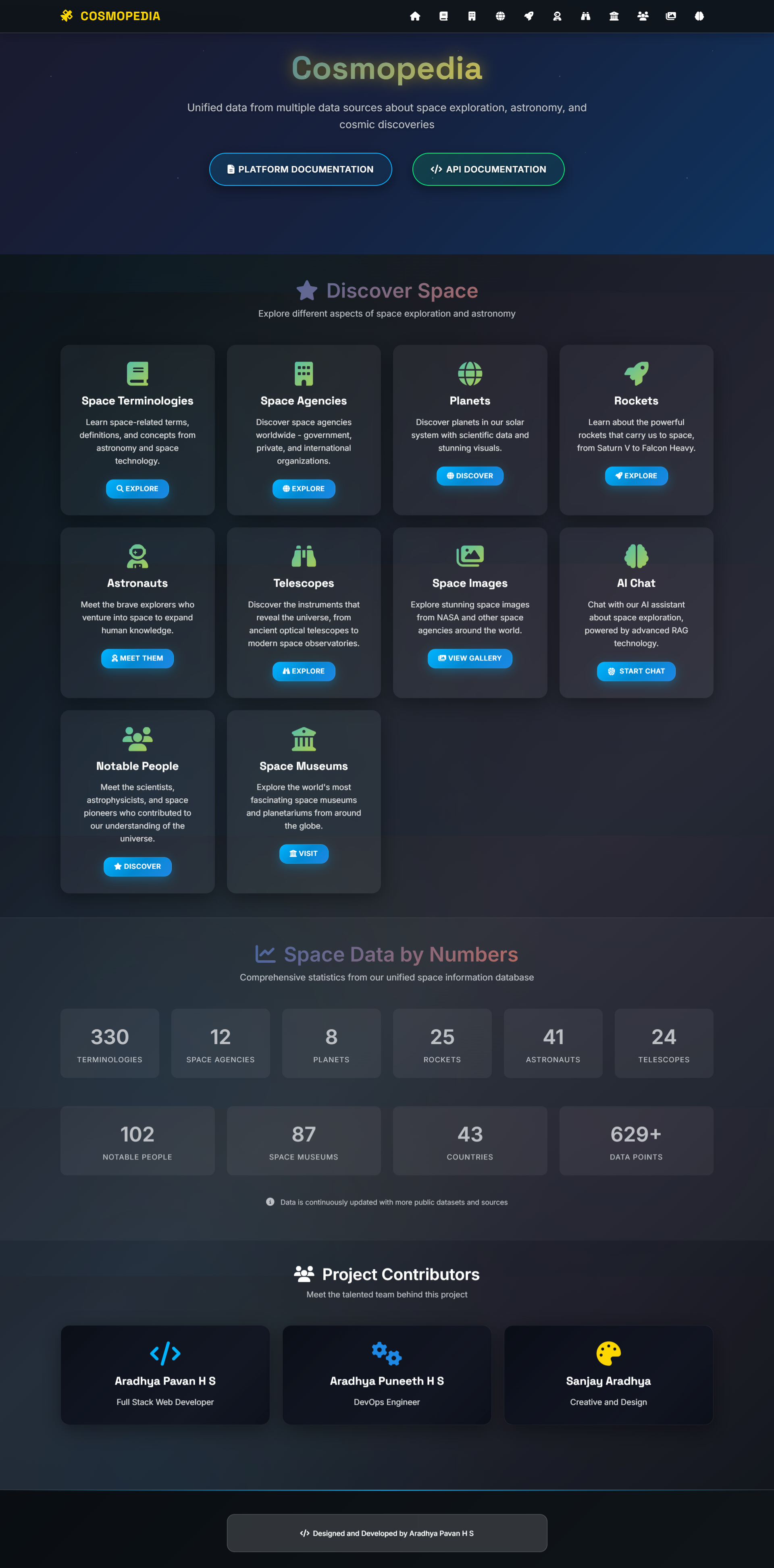
Project Snapshots


CosmoPedia is a unified, open-access space knowledge platform that consolidates verified data from multiple sources into one modern interface. It brings together terminologies, space agencies, planets, rockets, astronauts, telescopes, museums, notable people, and NASA images, along with an AI-powered chat assistant. Built with Flask, HTML5/CSS3/JS, and FAISS vector search, the platform also offers RESTful APIs and Swagger docs so learners, researchers, and enthusiasts can explore the universe and integrate data into their own apps.
The project is implemented with a Flask backend that provides RESTful APIs for categories such as terminologies, agencies, planets, rockets, astronauts, telescopes, museums, people, and images. All content is stored in structured JSON datasets, making it easy to query and extend. Semantic search is powered by FAISS, while an AI chat assistant enhances user interaction by answering space-related queries. The frontend is built with a modern, responsive Material 3 design, featuring category cards, interactive pages, and NASA image integration. Complete API documentation is available through Swagger UI.
Designed and Developed by Aradhya Pavan H S